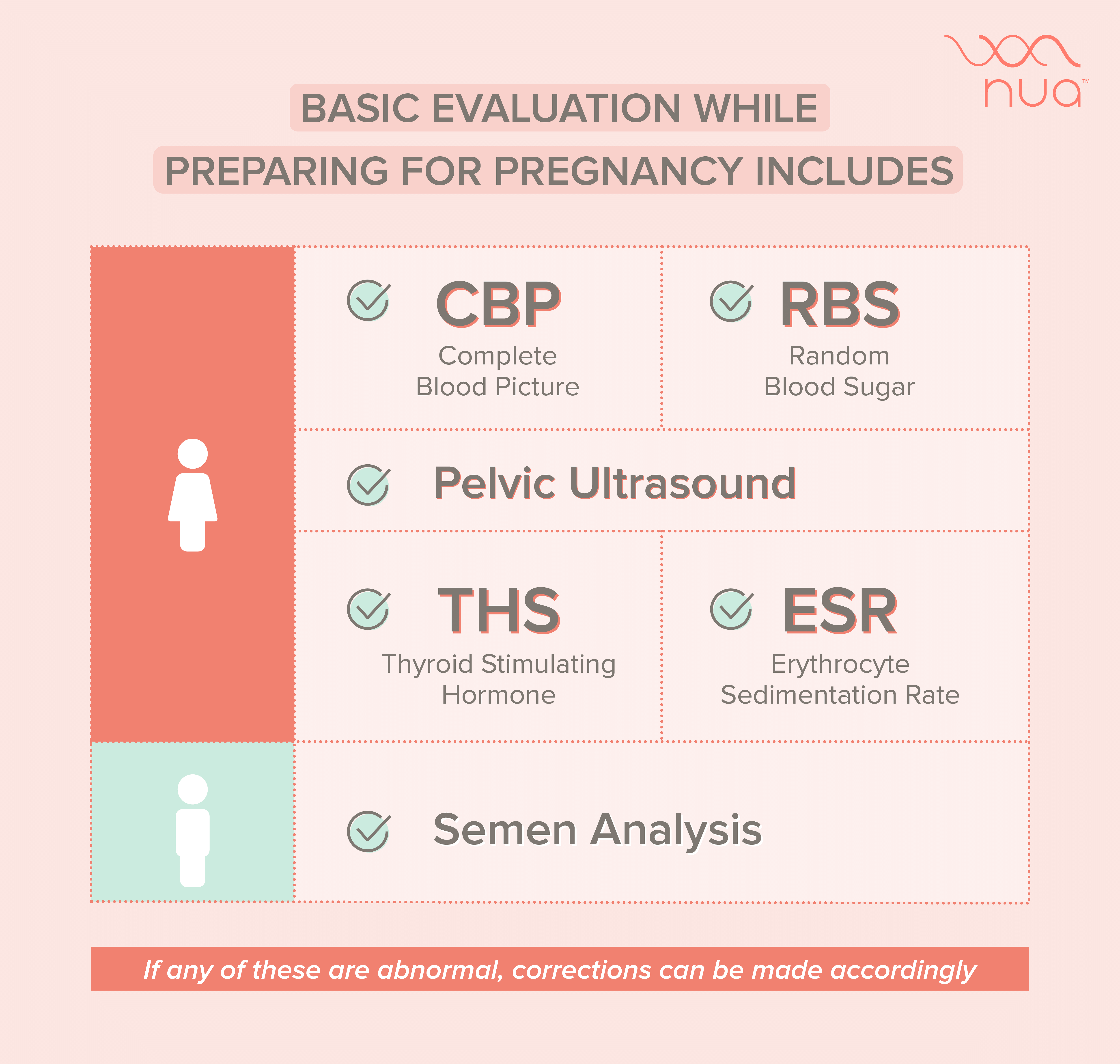If you’re at a point in your life where you’re preparing for pregnancy, the most common next step is wondering what you should be doing next. Many questions on how to prepare for pregnancy online can be mind-boggling. We’re here to make it easier for you to get all your questions answered here.
Here are a few steps to help you when you’re wondering about how to prepare for pregnancy:
Lifestyle
The cue for any successful pregnancy is having a healthy lifestyle. This applies to both partners. A healthy balanced diet with regular physical activity and adequate sleep keeps your hormones in place. Habits such as smoking, drinking alcohol, and taking drugs can affect your fertility potential, so keeping a guard on these is very essential for pregnancy. Start taking control of your lifestyle for at least 3 months before planning pregnancy.
Tracking Menstruation
Women should keep track of their menstrual cycles for pregnancy. It gives them a clue about their reproductive health. Basic information about the most fertile days and ovulation period can help when preparing for pregnancy accordingly. The ‘fertile window’ is the day an egg is released from the ovary (during ovulation) and the five days beforehand. Having intercourse during this time gives women the best chance of attaining pregnancy. The frequency, timing, and proper intercourse are keys for a successful pregnancy. If men have any erectile dysfunctions or ejaculation issues, they should meet a doctor. Having both partners being healthy is an essential step in answering the question on how to prepare for pregnancy.
Get a consultation from a doctor
It’s always good to go for preconception counselling with the doctor during the process of how to prepare for pregnancy so that they evaluate and guide you appropriately.
The doctor will notice if you suffer from chronic medical illnesses like epilepsy, diabetes, hypertension, anaemia, or any allergies. Keeping the disease under control is essential for a healthy pregnancy. They will advise if any change in medication is needed.
1. Any partner with genetically transmitted diseases like thalassemia, Tay Sachs disease, or cystic fibrosis should have genetic tests to know the chances of their child developing the disease during pregnancy.
2. Previous surgical history (if any: e.g. renal transplant, bariatric surgery, hernia repair, etc) will need to be communicated for any additional pregnancy care.

Diet
When preparing for pregnancy, a balanced diet before and during pregnancy is essential. Not only is it important for overall health, but also proper nourishment of the baby. Choose plenty of fruits, vegetables, whole grains, low-fat dairy, and lean proteins. Avoid highly processed, frozen and fatty foods. Limit your caffeine intake to no more than one or two cups of coffee per day. Take prenatal vitamins or a daily vitamin with 400 micrograms of folic acid because it reduces the risk of a birth defect of the brain and spinal cord (also called neural tube defects).
Mental Health
Make sure you are maintaining a positive atmosphere around you during pregnancy. Keep yourself stress-free and do things that make you happy. A couple less than 30 years of age with no other health issues can try conceiving naturally for a year without medical intervention and those over 30 years old can try for 6 months. After the duration, if you are not successful, please reach out to your doctor.
The chances of getting pregnant (while having intercourse during the fertile period of your cycle) is 25 – 30%. Don’t get worried if you are not successful on the very first attempt, keep trying until you need some medical intervention to help you prepare for pregnancy.
Our experts work round the clock to provide you with the answers that you are looking for. If you have any, leave it in the comment section below or send us a DM at @nuawoman. This is a safe space so don’t hold back on any doubts you may have about your body and mind.
Read all of Dr. Abhinaya Alluri’s other articles here.



